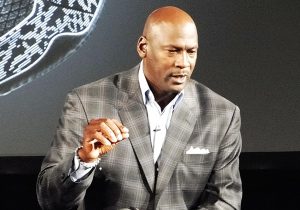Boy, girl, them or leaf
November 16, 2018
Whether someone identifies as a boy, girl or it, their gender identification is theirs and only theirs to worry about. Confusion and anger can arise when bringing up this topic. But what is the point of giving an opinion on something I know almost nothing about? Though I am cisgender and not the most knowledgeable in the area of gender ambiguity, I do happen to have friends who fall into a gender ambiguous category.
Growing up, I had no knowledge of things related to this, and it never crossed my mind. In high school, people around me were finally making decisions about who they are on their own. In this, I learned that some people are not just a boy or a girl. At their own choice, they are something else, in between or neither.
This has never affected me in any way because I identify as a female. Another reason is because it is simply not my business or my decision. We all have a right to be who we feel we are whether it needs a label or not.
Some terms that could be used to clarify who someone is are androgyny, metrosexual and gender fluid. These terms could help people better understand another’s stance. To have an unbiased view, I interviewed my friend Chris Boudreaux, a senior at Mandeville High School, to sum things up for me that I was confused with.
Androgyny is basically having the physical characteristics of both sexes, commonly known as male and female. Boudreaux shared more details about androgyny.
“Androgyny is when you’re looking at a person and you might ask yourself, ‘Is that a boy or a girl?’” said Boudreaux. “Of course, it doesn’t exactly matter because that shouldn’t be the first thing I would think I guess, but if you do, it would just be confusing because you can’t automatically say ‘That’s a guy,’ or ‘That’s a girl.’ They are what they are to themselves.”
A metrosexual would be considered a young, urban, heterosexual male with liberal political views, an interest in fashion and a refined sense of taste.
“Metrosexual is just a very feminine or even slightly feminine street name for a guy, that’s all,” said Boudreaux. “You may question if he is gay, but he’s just more in touch with his feminine side.”
Then there is gender fluid, which is related to people who do not identify themselves as having a fixed gender.
“They just don’t agree with the terms that are there,” said Boudreaux. “They don’t want to say ‘yes’ on this gender and ‘no’ on this gender. They are someone who is simply there, existing, and doesn’t want to deal with specifics.”
Yes, terms and labels can get confusing for others, but I do not think it is meant to be. I think that it is just as confusing for the person using them as it is for the person trying to differentiate them.
As someone who accepts any label, Boudreaux went into detail about how she feels.
“You could call me a blanket, and I just wouldn’t care,” said Boudreaux. “If someone does refer to me as ‘he,’ it does take me back for a second because no one ever really does. If you call me she, he, garbage bag, that’s fine. I don’t care enough to pick a label. Some of them help, and some of them don’t. It all depends on what someone wants to be called.”
I can agree with this when I put myself in their shoes. Personally whatever someone would think I am, that is what I am to them, and it would be fine with me. No, I do not know all of the terms, but it is better to update yourself on our ever-changing community. No one knows what the future holds, and we should be prepared to adjust our knowledge on things like this because simply enough, it will not go away.










Anonymous • Dec 3, 2018 at 2:17 pm
As an advocate for LGBTQ+ rights, I was excited to see an article on gender in the Lion’s Roar. I was disappointed to find that the article contained both misinformation and potentially harmful messages.
Most of my objections are to the author’s word choices. For example, the terms “it”, “leaf”, and “blanket” in reference to gender identity are both dehumanizing to gender minorities and dismissive of their experiences and pronouns. Claiming that these topics are “only theirs to worry about” suggests that those identities need not be acknowledged or respected in social settings.
I also found the author’s use of the terms “making decisions” and “choice” to describe the coming out process to be misleading and oversimplified. While experiences differ, the implication of choice dismisses the dysphoria and risk associated with being a gender minority, which is not something that can be chosen or rejected at will and which carries the potential for major risks to relationships and survival.
My final concern is with the terms discussed in the article. I felt that including “androgyny” and “metrosexual” (both of which refer to appearances and taste) with “gender fluid”(which refers to a gender identity) to be misleading. This grouping implies that gender expression is the same as gender identity, which is inaccurate. Additionally, the definition of “gender fluid” provided actually describes nonbinary genders as a whole, of which fluidity is a subcategory.
While I do not believe that Miss Rexwinkle intended harm, I feel that this topic carries significant weight for those involved and requires more than a single interview to accurately grasp.